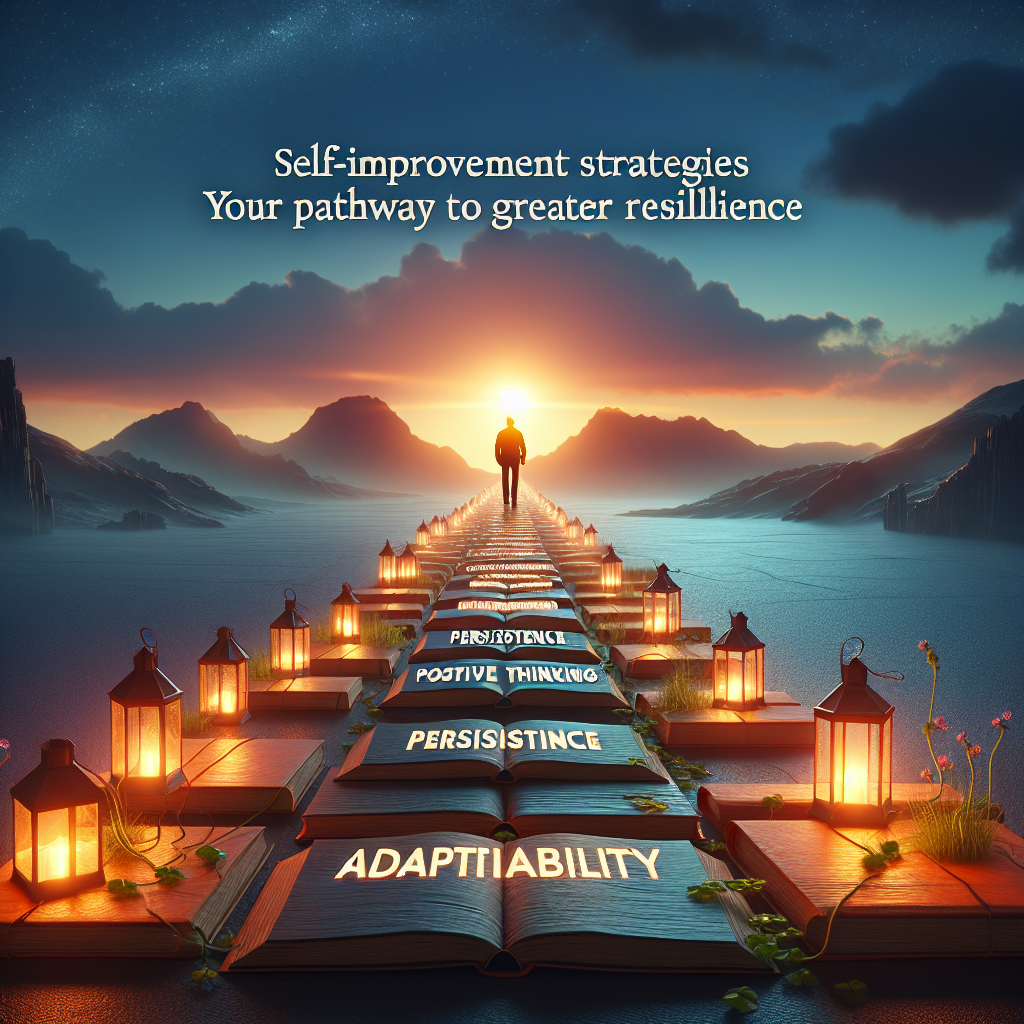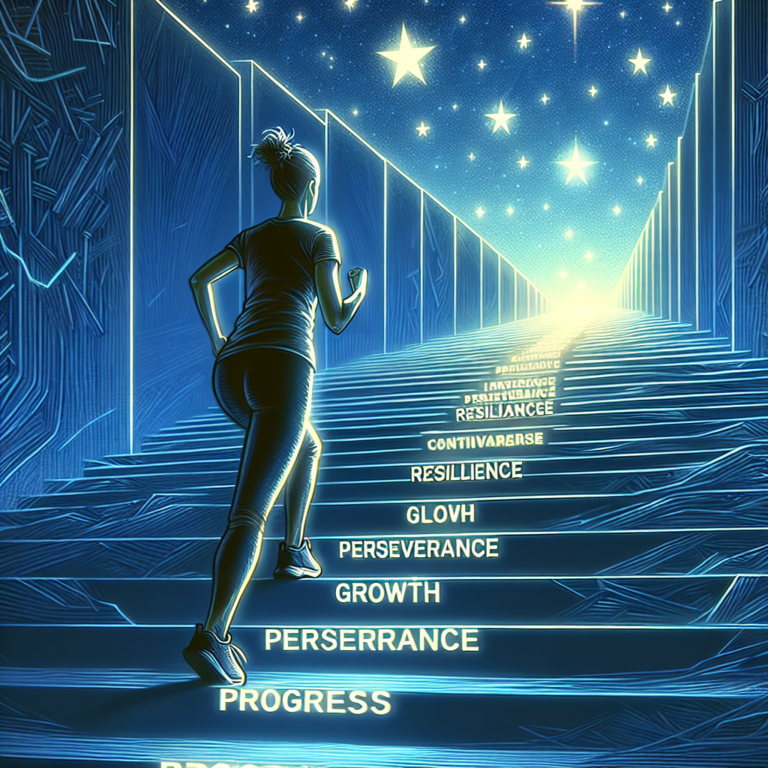
Essential Self-Improvement Strategies: Your Pathway to Greater Resilience
Introduction
In our fast-paced, ever-changing world, resilience has become a prized quality that can significantly influence our well-being and success. Resilience—the ability to bounce back from adversity—isn’t merely an inherent trait; it can be cultivated through effective self-improvement strategies. This article explores Self-Improvement Strategies: Your Pathway to Greater Resilience, providing valuable insights and practical applications to help you navigate life’s challenges with confidence and strength.
Understanding Resilience
What is Resilience?
Resilience is often defined as the ability to withstand and overcome difficult situations. The question becomes, how do we build this resilience? The answer lies in self-improvement strategies that focus not only on mental fortitude but also emotional intelligence, adaptability, and health.
Why is Resilience Important?
Having resilience not only aids in coping with stress but also enhances our overall quality of life. Studies suggest that resilient individuals experience lower rates of anxiety and depression, better physical health, and improved relationships. Thus, striving for greater resilience through self-improvement strategies is a worthy contributor to personal growth.
Self-Improvement Strategies for Greater Resilience
1. Setting SMART Goals
SMART—Specific, Measurable, Achievable, Relevant, Time-bound—goals set the groundwork for focused personal development.
Case Study: Sarah’s Journey
Sarah, a marketing professional, struggled with managing her work-life balance and often felt overwhelmed. By establishing SMART goals, she started with "I will reduce my work hours by 10% over the next three months." This provided her clarity and direction, leading to improved resilience as she could manage stress more effectively.
2. Mindfulness and Meditation
Practicing mindfulness can significantly improve your ability to manage stress. Meditation allows individuals to ground themselves in the present, fostering emotional regulation and mental clarity.
Research Insights
A study published in Psychological Science found that individuals who practiced mindfulness meditation showed enhanced resilience in stressful situations. Incorporating mindfulness into your daily routine can serve as a powerful self-improvement strategy on your pathway to greater resilience.
Quick Mindfulness Exercises
| Exercise | Duration | Purpose |
|---|---|---|
| Deep Breathing | 5 mins | To reduce immediate stress |
| Body Scan | 10 mins | To enhance body awareness |
| Gratitude Journaling | 10 mins | To shift focus to positivity |
3. Developing Emotional Intelligence
Being emotionally intelligent helps you navigate interpersonal relationships judiciously and empathetically. This is crucial for resilience as it fosters better communication and conflict resolution.
Case Study: John’s Transformation
John was promoted to team lead but struggled with team dynamics. By enhancing his emotional intelligence through training and self-reflection, he improved his relationships at work. This, in turn, built his resilience, allowing him to lead more effectively and gracefully handle challenges.
4. Building a Support Network
Surrounding yourself with positive influences significantly enhances your resilience. Friends, family, and coworkers can offer emotional support and practical help during tough times.
The Power of Community
Research indicates that social connections can be a buffer against stress. A case study from Harvard University emphasized that individuals with strong social networks exhibited higher resilience in the face of life’s challenges.
5. Continuous Learning and Growth
Adopting a growth mindset—believing that abilities can be developed—encourages a willingness to learn from mistakes and build resilience.
Learning from Failure
Many successful entrepreneurs, like J.K. Rowling, faced numerous rejections before achieving their goals. Their resilience stems from viewing setbacks as opportunities for learning rather than points of discouragement.
6. Physical Wellness and Nutrition
Often overlooked, physical health plays a crucial role in resilience. Regular exercise and a balanced diet can greatly improve mental well-being.
Fitness and Mental Health
A study found that individuals who engage in physical exercise reported lower levels of stress. Incorporating regular physical activity—whether through yoga, running, or team sports—can be one of the most effective self-improvement strategies for building resilience.
| Activity | Benefits |
|---|---|
| Yoga | Reduces anxiety and promotes relaxation |
| Jogging | Boosts endorphin levels |
| Team Sports | Enhance social connections and well-being |
7. Practice Positive Self-Talk
Your internal dialogue greatly influences your resilience. By practicing positive affirmations, you can retrain your mind to react constructively to setbacks.
Quick Tips for Positive Self-Talk
- Replace "I can’t" with "I’ll learn how."
- Use affirmations like "I am capable," to build confidence.
Conclusion
As we navigate life’s unpredictable terrain, cultivating resilience becomes essential. Through a variety of self-improvement strategies, you can take meaningful steps toward not only bouncing back from adversity but also thriving in spite of it. Whether through setting SMART goals, enhancing emotional intelligence, or building a supportive community, each strategy brings you closer to greater resilience.
Remember, resilience is not a destination but a lifelong journey of personal growth and self-improvement. Embrace these strategies today, and become the resilient individual you aspire to be!
FAQs
1. What are the most effective self-improvement strategies for building resilience?
Effective strategies include setting SMART goals, practicing mindfulness, developing emotional intelligence, building a support network, focusing on continuous learning, maintaining physical wellness, and practicing positive self-talk.
2. How long does it take to build resilience?
Building resilience is a gradual process that varies for each individual. Consistently applying self-improvement strategies over weeks or months will yield the most significant results over time.
3. Can resilience be learned?
Yes, resilience can be learned and developed through various self-improvement strategies, such as those outlined in this article. It is not solely an inherited trait; experiences and actions greatly influence it.
4. What role does physical health play in resilience?
Physical health significantly impacts mental well-being. Regular exercise and proper nutrition are key components that enhance both physical and emotional resilience.
5. How can I assess my level of resilience?
Self-reflection is essential for assessing resilience. Journals, quizzes, or discussions with trusted friends or mentors can help identify areas of strength and opportunities for growth.
By applying the insights and strategies outlined above, you embark on a transformative journey—one that empowers you to enhance your resilience and navigate life’s challenges with renewed vigor.















